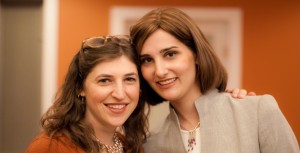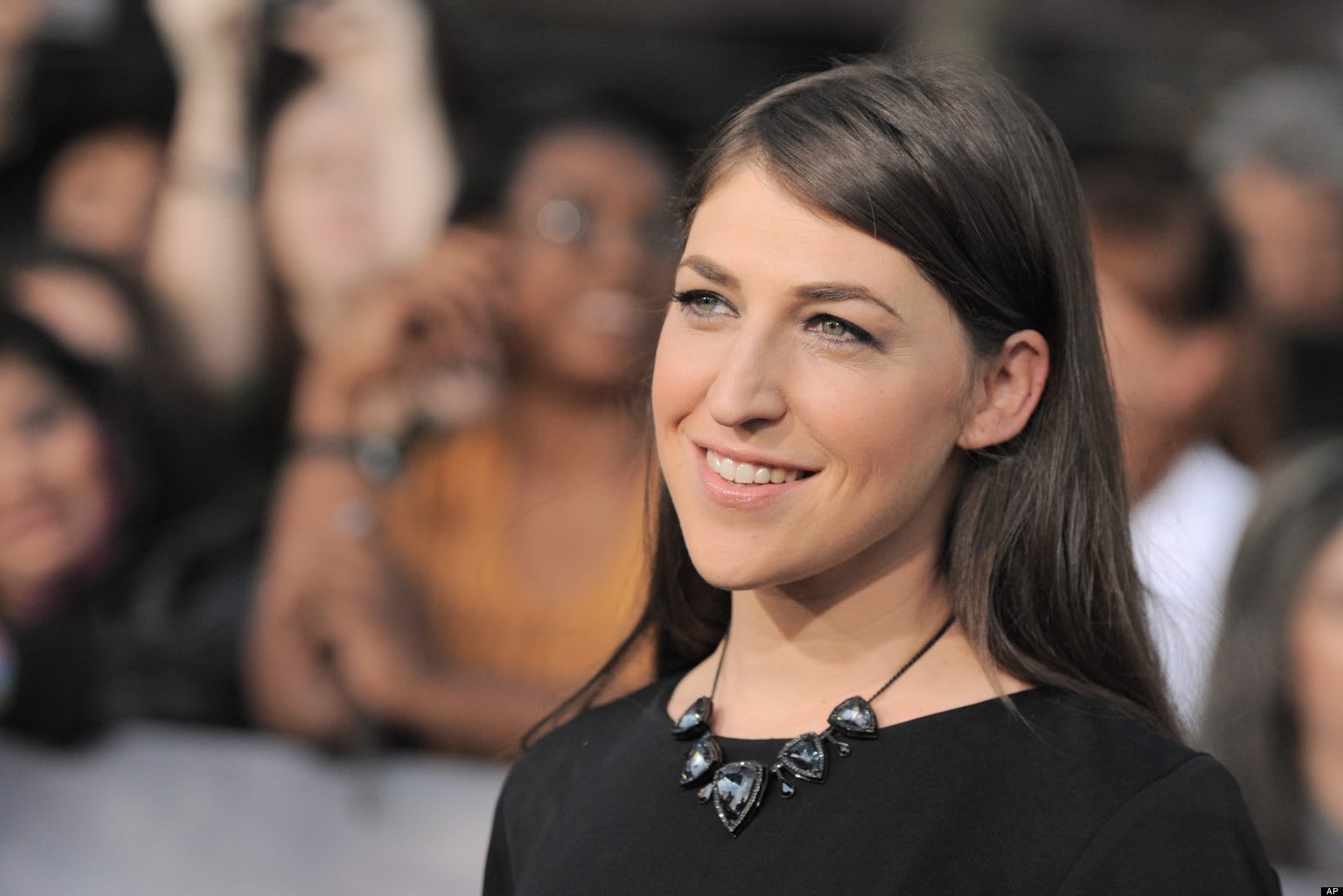This originally appeared on www.jewinthecity.com.
When I logged onto Facebook yesterday at around 5pm, the first thing I saw was a status update, “Oh no, Mayim!” linked to an article entitled, “Mayim Bialik Hospitalized in Car Wreck, May Lose Finger.” I was in shock. I had just spoken to Mayim the night before. We were supposed to learn later that evening – what had happened to my dear friend?
 She didn’t answer her cell phone, so I started calling and emailing everyone I know who she’s close with – hoping they’d have more information than the TMZ article divulged. It was surreal to find out news like this about a good friend on a gossip website! Mayim, thank God, will be keeping all her fingers, but her experience was just another reminder of why I cling to my emunah (faith).
She didn’t answer her cell phone, so I started calling and emailing everyone I know who she’s close with – hoping they’d have more information than the TMZ article divulged. It was surreal to find out news like this about a good friend on a gossip website! Mayim, thank God, will be keeping all her fingers, but her experience was just another reminder of why I cling to my emunah (faith).
A few days before Mayim’s accident, a young guy I’m friendly with posted on Facebook that he had just gotten up from sitting shiva for his brother. I had been in touch with him the previous week to discuss a video we’re collaborating on and was shocked to hear the news. I emailed him to offer my condolences and he said, as I suspected, that soon after we had spoken, his brother died suddenly.
I live my life waiting for tragedy to strike. Not in a dysfunctional way, but in a realistic way. In a non-distracted way. I still smile and laugh and enjoy life. Thank God, I have had so many blessings in my time here, but as a child, I learned a truth about the world that nobody ever wants to talk about or think about: we have no ultimate control. Health today does not mean health tomorrow. Safety today does not mean safety tomorrow. Financial security today does not mean financial security tomorrow. Every time a celebrity’s life is cut short from a disease or accident I am reminded that death does not discriminate.
When I was eight years old a friend and classmate of mine was murdered by her father. The death of this young girl burst the bubble of stability that I had been living in until then. It was a terrifying discovery to make at such a young age that my parents who loved me and did everything in their power to provide for me had no way to completely protect me.
I spent years after this death searching for meaning and purpose in life and accidentally discovered Orthodox Judaism along the way. I gave things up to become an Orthodox Jew. I changed how I ate, dressed, spent my time. I read an article recently about a woman who was raised religious, but found the lifestyle too restrictive. There were things she wanted to do, but she couldn’t do them exactly as she wanted to within the framework of Jewish law, so she gave up Jewish observance instead.
Everyone must live her life as she sees fit, but for me, there is no value in getting to fulfill every one of my heart’s desires when at the end of the day I ask myself if the life I’m living is leading to something more than just the happiness of the here and now and the answer is “no.” Being observant doesn’t protect me from suffering. My loved ones and I are still just as vulnerable to life’s onslaughts as anyone else is. But living a life connected to the Almighty means trusting in a greater purpose when bad things happen. Believing that when suffering comes – and I know it will – that there’s more to the story than what I see from my vantage point.
And that’s why the restrictions are worth it to me. Truth be told, I don’t find my life terribly restrictive. I can’t wear every fashion within the laws of modesty, but I can still feel very fashionable and beautiful. I can’t eat every food within the laws of kosher, but I can still eat amazing, gourmet food. I don’t always get to go to every event I want to if it conflicts with Shabbos or a holiday, but these events pale in comparison to what the Jewish calendar does for my life.
Sometimes cynical people say that faith is a crutch – perhaps it is somewhat. A crutch is something you need when you can’t make it on your own, and I’ll say right now that even with all the privileges, talents, and blessings I’ve been given – I am nothing standing next to eternity. I feel minuscule when I consider the infinite sea of blackness our tiny planet is floating in. I feel helpless when I think of the terrible, horrible things that could afflict those I love at any moment, without warning.
But we don’t call God a “crutch” in Judaism. We call Him Tzur Yisrael (the Rock of Israel). Hashem is our “Rock of Gibraltar.” Why does Judaism consider God a rock instead of a crutch? Perhaps because the imagery of a crutch suggests a device which is meant for the bent, the crippled, whereas the imagery of a rock connotes footing and stability for one who is strong. We need Hashem for support, but the relationship doesn’t leave us lame. It allows us to grow and strive and become Godly individuals, unlocking an inner strength we might not have tapped into otherwise.
My existence is intense at times. Recently, before going to bed at night, I’ve been crossing off the day I just lived on a mental calendar that is floating around in my head. I hope my inability to distract myself keeps me growing, achieving, and making the most of the short time I have. I pray for a long life, but even the longest of lives is just the blink of an eye next to eternity.
Allison Josephs is the founder and director of JewintheCity.com which breaks down stereotypes about Orthodox Jews and offers and humorous, meaningful look into Orthodox Judaism through the power of new media.
The words of this author reflect his/her own opinions and do not necessarily represent the official position of the Orthodox Union.
